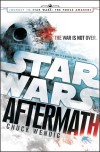All You Need Is Kill
 I have to say, All You Need Is Kill has to be one of the most unfortunate names for a novel I’ve ever seen. It sounds like the title of the worst Bruce Campbell movie ever made, and that it also manages to get a Beatles song lodged in your head for an hour or so is just a tragic side effect. What makes it even more embarrassing of a title is that it has nothing to do with the book in question. I mean, the story is a cross between Groundhog Day and Aliens, with a touch of mecha-anime to it, written in what’s meant to be a gritty tone, and the best the writer could come up with was All You Need Is Kill?
I have to say, All You Need Is Kill has to be one of the most unfortunate names for a novel I’ve ever seen. It sounds like the title of the worst Bruce Campbell movie ever made, and that it also manages to get a Beatles song lodged in your head for an hour or so is just a tragic side effect. What makes it even more embarrassing of a title is that it has nothing to do with the book in question. I mean, the story is a cross between Groundhog Day and Aliens, with a touch of mecha-anime to it, written in what’s meant to be a gritty tone, and the best the writer could come up with was All You Need Is Kill?Regardless, the novel is actually a pretty decent read. I’ve only read a few books (outside of my literature classes) that were translated from their original languages, and a couple of them were very clunky and hard to follow. I’ve never known whether to chalk that up to the original story or the translation, but that wasn’t the case with AYNIK; in fact, it read like it was originally written in English. The dialogue felt natural, and the pacing was well done, and considering that this was a book about futuristic warfare, that was a pretty necessary accomplishment in both respects.
The story itself is pretty straightforward — Keiji Kiriya is a soldier who dies on the battlefield and then wakes up to start the whole day leading up to that point all over again — and it’s very easy to see why it’s easily compared to Groundhog Day. The structure of the characterization even follows a similar pattern, and for the first half of the book, you might find yourself wondering what makes this all that different of a story, aside from the war part of it. By the second half, though, the author starts to look into what’s making things happen the way they are, and that’s where the story started to seem original. It’s a pretty interesting look at that phenomenon, and even if the ending is fairly sudden and anticlimactic, the journey to that point is certainly worth the mild disappointment.
The author’s note tells that the story came from him playing a video game, where he could restart levels over and over again with the intention of perfecting the right steps to get him through the end of it alive, and he wondered what it would be like if real life worked that way. Part of me wishes he had looked at the story from that perspective, but it probably would have come across as farcical, anyway. As it is, AYNIK is a quick, compelling, interesting read that would be just right for anyone looking for a science fictional “beach read.”






